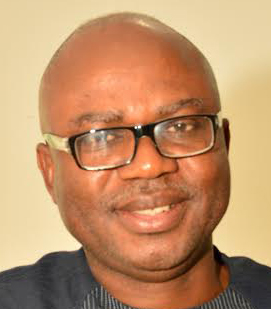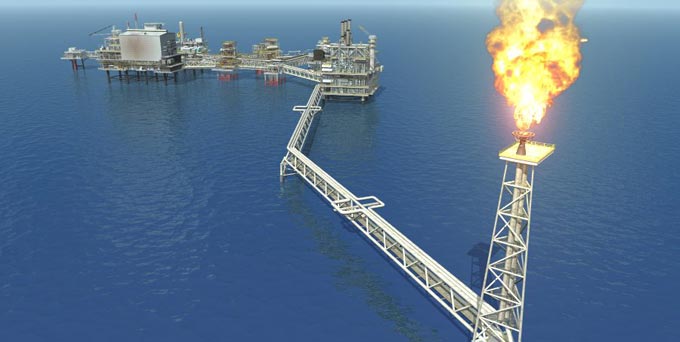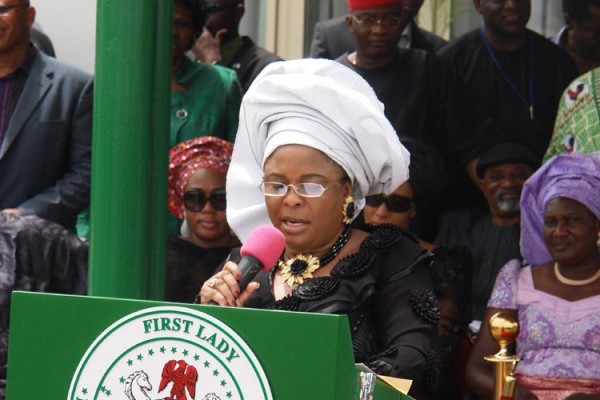All Nigerians have been challenged to think outside the box in order to get the country out of recession. We columnists have often contributed valuable ideas towards heading off a recession or even a depression, but the rulers of Nigeria have not listened. We foretold a day like this.
Perhaps, those who offer ideas for free in the media are fools. When government decides to pay money for ideas, it never pays us; it pays panels, consultants and smart alecks who borrow ideas from what they read in the media. Today, however, I continue the thankless job in a bid to lift the country out of a recession that has caused (and is causing) thousands of deaths by poverty, suicide, hunger and untreated sicknesses in the past one year alone.
Since we cannot think of anything else other than selling an asset or assets to raise money, my suggestion is that we sell or lease a part of the country, Sambisa Forest in north-east Borno State, to a more serious nation for no less than $150billion. That’s 10 times $15bn that some believe would get us out of this recession. Sambisa Forest, we’ve been told, is the size of four or more states in southern Nigeria and sparsely inhabited. The area is fertile and harbours many mineral deposits.
Anyone who is not convinced that Sambisa Forest would attract buyers should hear this story that I’ve told twice in the past: About 20 years ago, a friend was travelling with a Japanese by road from Lagos to Benin City. The Japanese was amazed by the vast lands they were passing by, so much so that he asked the Nigerian driver to stop. Then, he asked my friend, “What do you people do with all this land?” My friend responded, “The land you’ve seen is small. There are large expanses of unutilised land everywhere you go in Nigeria.”
Advertisement
The Japanese shook his head twice. He said that if his country could get a half of the empty land he had seen, it would build the largest economy in the world within a few years.
If we put Sambisa Forest up for sale, therefore, I’ve little doubt that many nations would struggle over it. Apart from Japan (whose citizens live in houses built inside water because of lack of land), the US, UAE, China, Israel and even South Africa would be interested in buying it from us.
Selling Sambisa would solve multiple problems too: the threat of terrorists would be gone, recession would end, and jobs would be created for millions of people as the buyers embark on agriculture, tourism and housing projects there. The European Union or the US might decide to build a new nation in the area to show Africa how to prosper in a territory blessed with fertile land, gold, diamonds, lead, uranium and other precious things buried under its soil.
Advertisement
In fact, if the $150bn expected from the buyers proved inadequate to end the recession, we should consider selling it together with the Chad Basin, and stop prospecting for oil in the basin. We would get up to $250bn if we sold Sambisa along with the Chad Basin. There is enough land in the north to accommodate those that might be displaced.
If we needed more than $250bn, we could add a part of Kaduna State to the area to be sold. The state governor, Nasir el-Rufai, claimed that gold deposits in Kaduna far exceeded all the gold in South Africa, now the largest economy in Africa. So what are we waiting for? Since we have refused to exploit the riches freely given to us by nature (except oil in the Niger Delta), we should let more serious countries extract them for the benefit of us and them.
There’s nothing to be ashamed of, if we sold or leased a part of our territory. Remember that, almost 150 years ago, the then Russian Empire sold Alaska to America for less than $8million. What is Alaska, the 49th US state, worth now? Perhaps Russia was in a recession in 1867, but today it’s not mourning because it lost Alaska.
Businessman Aliko Dangote’s suggestion that the country should sell its share in the Nigeria Liquefied Natural Gas (NLNG) in order to raise $15bn seems to have removed all doubts about the status of Nigeria as a banana republic. Were it not the beloved Dangote that first made the suggestion that has now sparked a debate among the elite, I would have called him names. But Dangote deserves respect. He might have made his billions of dollars from waivers his companies enjoyed from cement, sugar, rice, salt and other imports, but he has also invested fortunes in his country and in Africa, thereby creating millions of jobs.
Advertisement
However, selling the cash cow – NLNG fetches more than $2billion yearly – doesn’t qualify as a product of “thinking outside the box”. Like Dangote himself, some “seasoned” economists and “distinguished” politicians that want NLNG sold mean well. But some are agents of the devil whose thinking lies within the “box” – the same oil and gas found in the Niger Delta. By now, we should be thinking of diversifying the economy (looking beyond oil and gas), and restructuring the country with a view to achieving true fiscal federalism.
Most public assets in Nigeria have already been sold (if “sold” is the word to use), yet the sale has not prevented Nigeria from slipping into a recession and now approaching a depression. At least $75bn has been realised from the sale of former public monopolies like the power company, the telecommunications company and the national airline. Where is the money? Looted and stashed away in foreign banks to be used for creating jobs for citizens of other countries while Nigerians wallow in misery and joblessness. Those who know say over $500bn has been looted from the country’s public purse since 1960.
How would a mere $15bn lift Nigeria out of a recession hole? That is an amount made from oil and gas alone in the first half of 2014. As I type this, at least $17bn is being sought from proceeds of oil not accounted for during three short years. Houses built in Abuja alone with stolen money from 1999 are worth over $70bn. Yet, a government that has sworn to recover looted funds can’t lay hands on these proceeds of corruption scattered in major cities like Abuja, Port Harcourt and Lagos.
NLNG is perhaps the only viable asset left, apparently because foreigners run it; government owns only 49 per cent of it. I can’t fathom any other motive of those currently campaigning for its sale except that they wish to steal it as they had stolen other public assets through the back door.
Advertisement
Does the federal government, apparently bereft of good ideas, intend to liquidate Nigeria quickly? With oil prices down and militancy disrupting oil production, selling off NLNG would be one last act of desperation.
Nwamu is the CEO of Eyeway.ng
Advertisement
1 comments







This is what i call thinking towards the right direction, our leaders are so selfish in their own despiration to milk us dry that they can do anything, selling a national asset lik NLGN that earns 2billion dollars yearly is just right, let the government sale sambisa